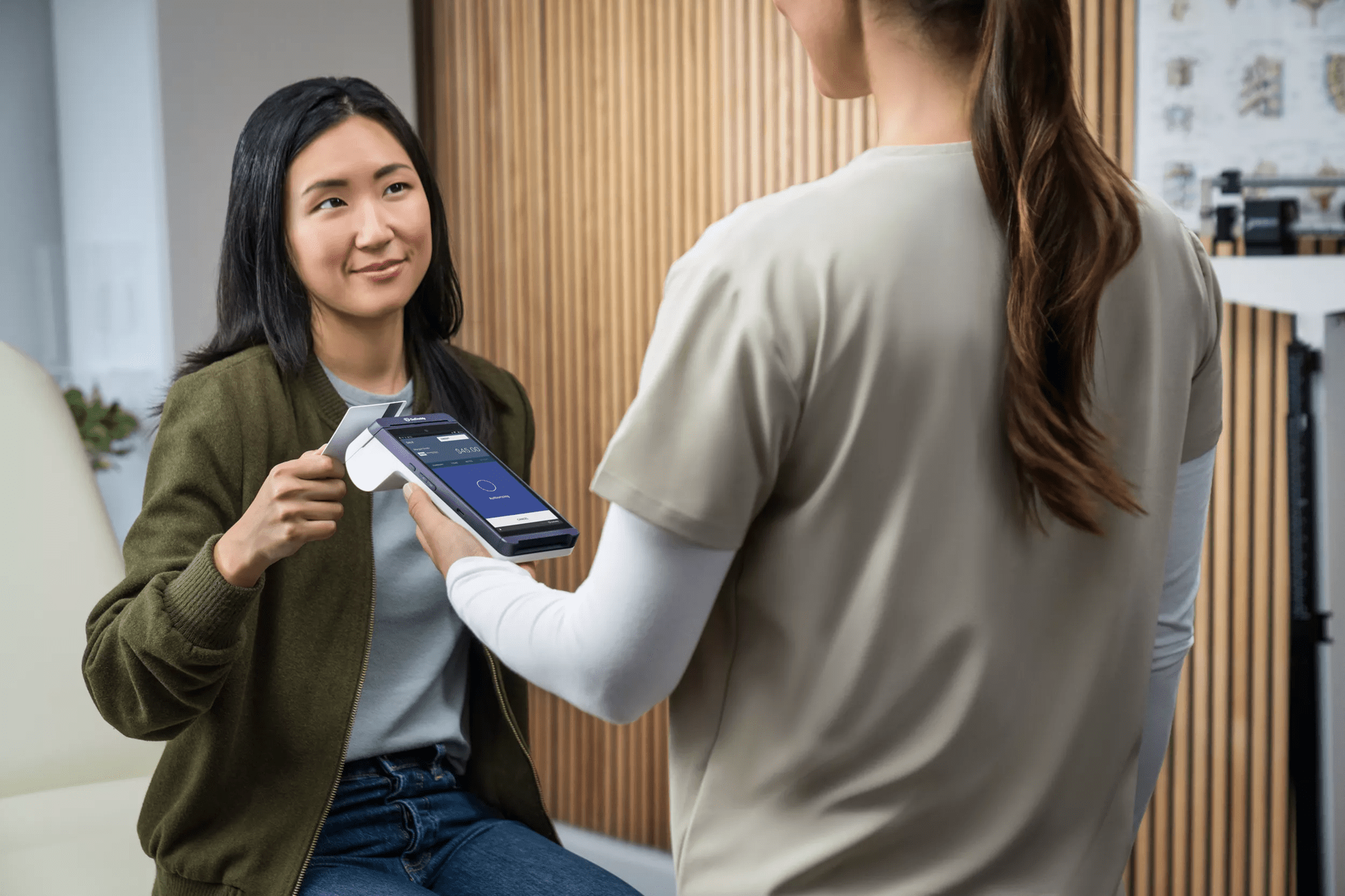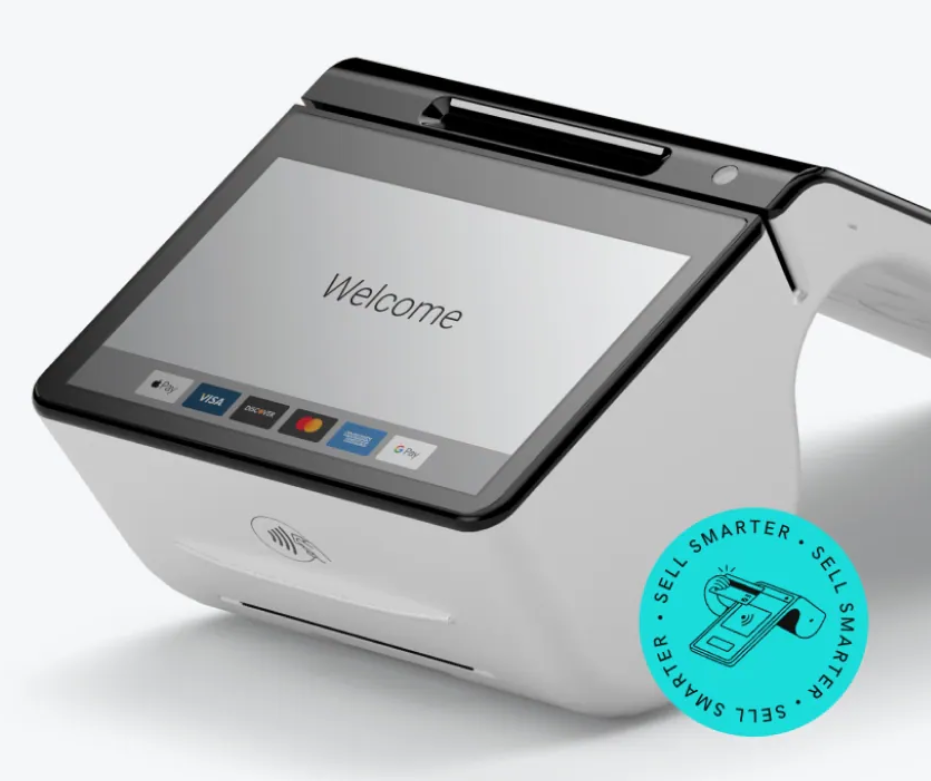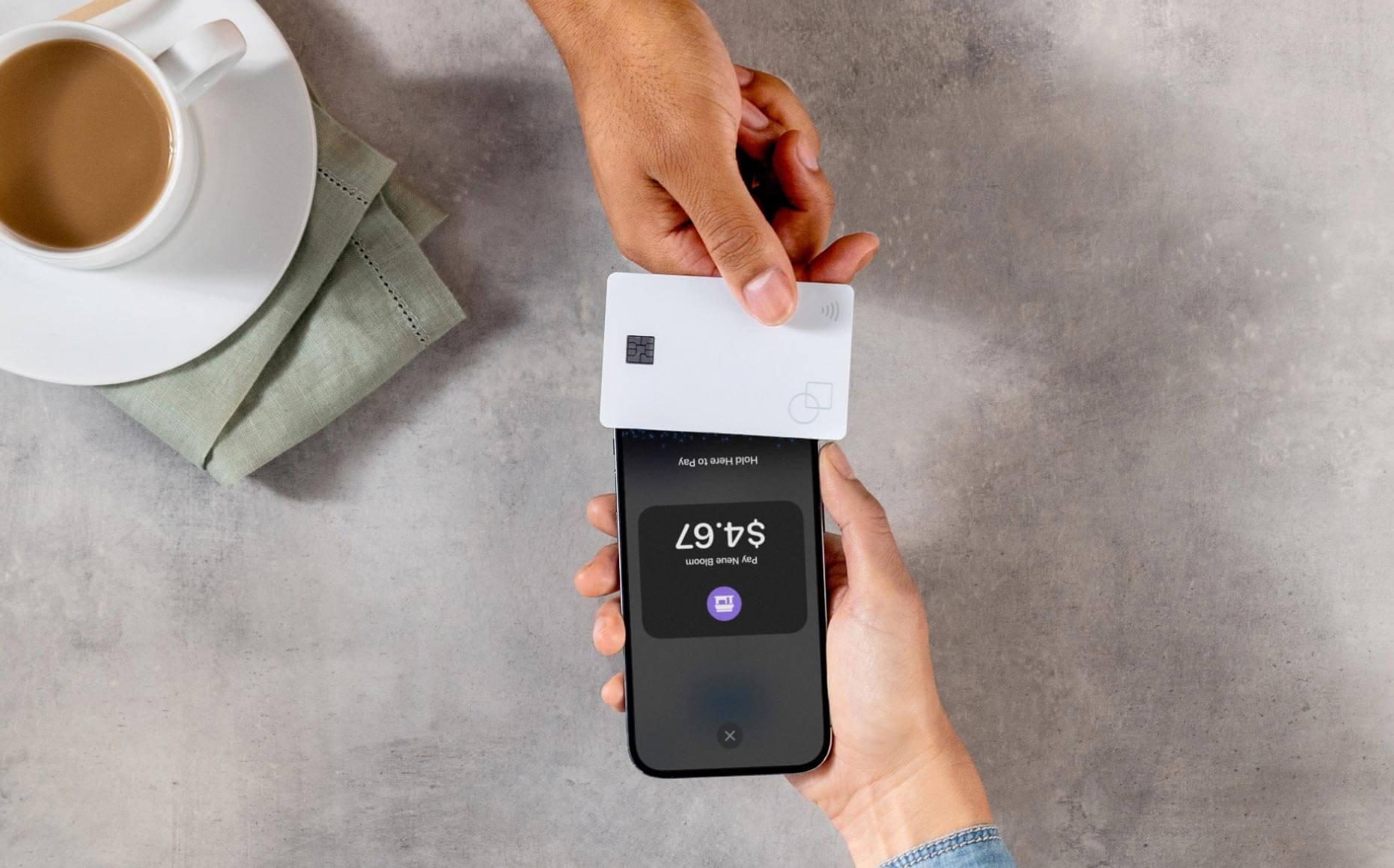It’s no secret that businesses are continuously seeking new ways to simplify transactions, streamline operations, and enhance customer experience. One such tool that has emerged as a valuable asset for savvy entrepreneurs is the mobile POS (Point of Sale), or mPOS.
In this article, we delve into the world of mPOS, exploring how it can revolutionize your business operations, bring about unprecedented flexibility, and cater to the dynamic demands of today's tech-savvy consumers.
So, whether you're a budding entrepreneur or an established business owner looking to stay ahead of the curve, this article will help better equip you with the knowledge you need to leverage mobile POS options effectively in your business. Let’s dive in!
What is a mobile point of sale (mPOS)?
A mobile point of sale (mPOS) is a wireless, portable device that is easy to set up and, unlike some traditional point of sale systems, consists of as little as a smartphone or tablet, so getting started is simple. It performs the same payment functions as a standard cash register or traditional point-of-sale system, and often more. Think of it as a digital and highly flexible version of your old cash register.
Instead of being tied to a specific location, mPOS enables businesses to take their checkout process anywhere, whether selling on the shop floor, to customers waiting in line, or at a pop-up shop, or even a customer's doorstep.
An mPOS system typically operates on a smartphone or tablet. This system allows business owners to process contactless payments via credit or debit cards and mobile wallets. In some cases, it is paired with a card reader that can also handle card dip and swipe. There are also flexible POS devices available that are handheld and portable and can handle all types of card transactions. These solutions enable businesses to offer a wide range of payment options that provide an enhanced experience for customers.
In terms of cost, mPOS systems are generally more affordable than traditional POS systems. The average cost can range from a monthly fee of $20 to $100, depending on your chosen features. Some services also charge a small fee per transaction. A handheld POS option can cost from $250 to $600.
Eye-opening mPOS statistics
Not sure whether a mobile POS is worth it? Check out these statistics:
- The number of mPOS users is projected to reach 3.71 billion users by 2030.
- According to a 2024 Forbes poll, 53% of Americans use digital wallets more than traditional payment methods.
- A 2023 study done by the Federal Reserve found that 74% of participants had used an instant payment or digital wallet in the previous 12 months, and 57% of them expected to use them more often in the future.
- Worldpay reported that digital wallets were used in 30% of POS transactions in 2023 alone.
How does a mobile POS benefit your business?
In business, flexibility and efficiency are vital. Mobile POS systems, like tap-to-pay on a smartphone or a handheld POS system, provide businesses with increased mobility. Unlike traditional POS systems that are anchored to a specific location, a portable POS allows businesses to bring the checkout process to the customer. This means no more long lines at the cash register or having to walk a customer back to the counter to take payments — all of which makes for happy customers.

A mobile POS system is also simple for both merchants and customers to use. With its intuitive interface and smooth operation, customers can complete their transactions with ease. mPOS systems also often come at a lower price than traditional POS systems, making it a cost-effective solution for businesses, especially those on a tight budget.
Many mPOS systems are designed to accept contactless payments, enabling businesses to offer a wide range of payment options that provide an enhanced experience for customers.
Industry-specific solutions
Different industries have found unique ways to leverage portable POS to their advantage. Let’s explore a few examples of industry-specific solutions below.
Retail
Retail stores use an extra device as a mobile POS to take payments on the shop floor. This reduces lines and facilitates curbside pickup. Learn more about POS systems in the retail industry.
Food and beverage
Food businesses use handheld POS systems to take payments table-side, eliminating the need for customers to wait for their cards to be returned. Quick service restaurants look for QSR POS systems that are handheld to take payments while customers are queuing during busy hours. mPOS can also benefit food trucks or businesses with limited counter space due to their compact size.
Service businesses
Auto repair shops, car detailing services, and car washes use portable POS devices that can be brought out to the vehicle or workshop for convenience.
Beauty salons and vet clinics use mPOS systems to take payments from the chair or treatment room. This eliminates the need to move the customer or pet back to the counter.
Service businesses that operate away from their main premises, such as touring companies, can easily take payments where the customer is with a mPOS.
Pop-up shops and markets
Pop-up vendors on the move use a mobile POS system to reduce hassle when switching from one location to another.
What features make a great mobile POS system?
Ready to jump into a mobile POS system for your business? Let’s take a look at some of the features that you should consider for your business:
Portability
A great mobile POS system should be easy to carry in your hand and fit comfortably in an apron or back pocket. A durable design ensures it can withstand the hustle and bustle of everyday business operations.
Ease of use
Your POS should be easy to set up and use. Whether it comes with pre-installed software or requires a simple download, it should be user-friendly and hassle-free.
Smart capabilities
Some modern mPOS and handheld terminals do more than just process payments. Look for features like inventory management, sales analytics, and customer relationship management to streamline your business operations.
Cost
Consider the upfront cost, subscription fees, and transaction fees associated with your POS system. It's essential to find a balance between cost and functionality that suits your business.
Adaptability
A flexible POS system can adapt to your business needs, whether it's dealing with seasonal fluctuations or supporting growth. It should work seamlessly with your other business systems and processes.
Security
Your mPOS software should offer robust security features to protect your business and customers' data. This includes encryption, tokenization, and PCI compliance.
Durability and battery-life issues
Because mobile POS systems often experience repeated port connections, use of questionable chargers, and shared use among staff, businesses should prioritize robust, commercial-grade devices and portable power banks to ensure continuous, reliable operation. GoDaddy Smart Terminal Flex is durable with extended battery life for longer selling days.
Internet reliance and connectivity
A stable internet connection is crucial for mobile POS systems, but can be problematic for businesses in remote or crowded areas. To mitigate this, businesses can choose systems that support offline transactions and automatically sync offline data when the internet is back.
Cross-device compatibility
A great mobile POS system is compatible with other payment options in your business. This flexibility allows you to combine different payment methods, from countertop POS systems to more flexible options.
Dedicated support
Ensure your POS provider offers dedicated support to solve any issues quickly. This support could be through live chat, phone support, or a comprehensive knowledge base.
Cloud-based vs on-site
Consider whether a cloud-based or on-site mPOS system is right for your business. Cloud-based systems offer flexibility and accessibility, while on-site systems may provide more control.
Semi-integrated POS
Semi-integrated POS systems work with POS software to offer streamlined operations. These smart terminals sync inventory, manage catalogs, and integrate across sales channels.
Note: Payment providers like GoDaddy support most, if not all, of these features.
How to set up your mobile POS
Now that we’ve covered the benefits and features of mobile POS systems, let's dive into the nitty-gritty of how to set up and use a mobile POS solution for your business.
Option 1: Set up with a portable, handheld POS device
- Choose the right terminal: Before proceeding, identify a terminal that meets your business needs. Factors such as size, durability, processing speed, and compatibility with your existing systems will influence your choice. Consider whether you need a built-in receipt printer and barcode scanner. Prioritize features like offline mode to ensure transactions can continue even without internet connectivity.
- Sign up for a payment processing account: To accept card payments, you'll need a payment processing account. This can be obtained from a bank or a specialized payment processor. Your provider may offer both the POS device and payment processing.
- Obtain the hardware: Depending on the provider, you might need to purchase or lease your chosen POS device.
- Connect and configure: Once you have the hardware, it should be easy to connect to wifi and set up the basic configurations like tax rates, receipt details, and other business settings.
- Start accepting payments: The system should be able to process all major credit and debit cards via tap, dip, and swipe, as well as mobile wallets.
- Monitor your sales: You can often access reporting on the device and via a web-based dashboard.
Option 2: Set up with a mobile phone
If you don't want to invest in additional hardware, your mobile phone can serve as a POS terminal. Here's how:
- Download the app: Sign up with a mobile POS provider and download their app on your phone.
- Process payments: Open the app whenever you need to ring up a sale. Enter the payment amount, and your customer can tap their card, phone, or smartwatch to your device to complete the transaction.
- Add a card reader device: if you want to take card payments via dip and swipe as well as tap, you will need to pair your phone with a card reader.
- Check reports: Most apps provide reporting features. They allow you to track sales, monitor inventory, and even generate end-of-day reports right from your phone.
Be more flexible in 2025 with mobile POS
It's important to reiterate the transformative impact these systems can have on business operations. Mobile POS systems are more than just a trend. They have become an essential part of modern business infrastructure, providing you with the flexibility to operate your business in a way that best suits your needs, as well as the payment opportunities that customers expect.
Implementing a mobile POS system in your business is a strategic decision. The convenience and versatility offered by these systems enable you to grow your business, expand your services, and integrate with other devices as your needs evolve.
Additionally, mobile POS systems that work with just an app make it very easy to get started with taking payments. The same is true for portable POS devices that come equipped with preloaded software because they're ready to work straight out of the box. This ease of setup, combined with the enhanced operational efficiency they provide, makes them a game-changer in managing transactions.
While upfront hardware costs are lower, many mPOS systems have monthly subscription fees or higher card processing fees than other POS options.
If you’re looking to jump into a mobile or portable POS system for your business, GoDaddy offers the same low in-person payment transaction fees whether you tap to pay or use a terminal, as well as a broader range of products to help you manage everything in one place. And, our 24/7 customer support ensures that help is always available should you need it, making the transition to more flexible payment solutions as smooth as possible.
Interested in speaking to our GoDaddy Payments team about getting a mobile POS system for your business? Contact our team here.
So, as we step further into the future, it's worth considering a flexible, mobile POS system. It's not just about keeping up with the times but also about leveraging technology to streamline your operations and provide better service to your customers, wherever they are. Embrace the flexibility and potential growth that mobile POS systems can bring to your business. After all, adaptability isn't just an advantage, it's a necessity.










